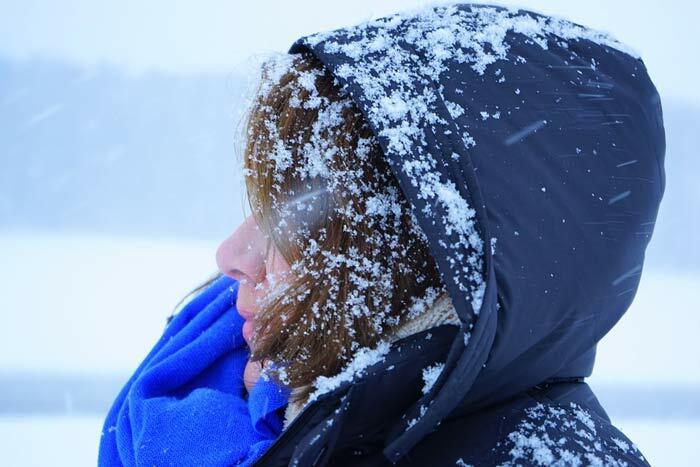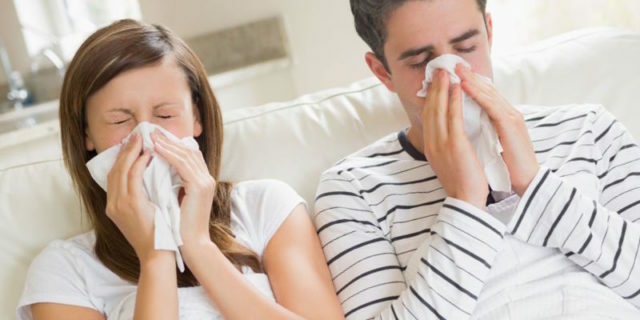
Page contents
- 1 Specific preventive actions
- 2 Who needs vaccinations?
- 3 Contraindications to vaccination
- 4 Folk remedies
It is treated always more troublesome and difficult than just not to be sick, especially this refers to respiratory and viral diseases, which during the cold season lie in wait everywhere and always go to bed at the wrong time. Prevention of influenza and SARS today is divided by physicians into two varieties - specific and nonspecific.
In addition to the use of medicines, there are folk methods, preventive vaccinations and other measures aimed at adjusting lifestyle, nutrition, hardening, that is, everything that contributes to the formation and strengthening of immunity.
Cold infections( ARVI, ARD), regardless of the type of pathogen, are accompanied by general malaise, upper respiratory tract infection, fever, headache. The flu is much more severe than respiratory infections and is characterized by acute course and risk of development of dangerous complications. The causative agent of the disease are influenza viruses, which are divided into types A, B, C.
When the flu shows symptoms of intoxication of the body that prevail over catarrhal manifestations, there is a high temperature and a significant deterioration in the general condition. In this case, the influenza virus is easily transmitted from a sick person to healthy people. Prevention of acute respiratory disease and influenza is aimed at preventing diseases and spreading them among the general population.
Specific preventive actions of
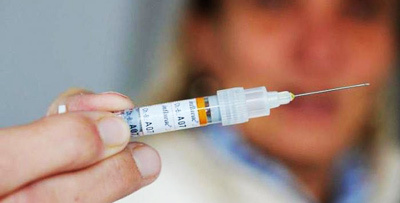 Photo: Influvak vaccine against influenza: description of
Photo: Influvak vaccine against influenza: description of Specific measures for the prevention of influenza and ARVI imply vaccinations that are carried out every week in each clinic. But their expediency causes a lot of questions, including the doctors themselves.
At the moment, about 20 different types of vaccines for four generations exist and are being used in our country for preventive purposes. According to official data, vaccines are used every season, given the strain of influenza that will be active.
Vaccines are classified as follows:
- the first generation is live vaccines sprayed into the nasopharynx, it is this type of vaccine that gives out a whole list of side effects and has a fairly low percentage of the success of the procedure;
- the second generation is split or split vaccines containing virus proteins, they have good results, but also have a high percentage of complications and side effects;
- the third generation is also a split containing the protein of the virus, they are considered the safest, their effectiveness in epidemics is about 60%;
- the fourth generation is a "mixture" of split and immunomodulator, the most optimal variant for vaccination - significantly increases the overall resistance of the organism, reducing the risk of the incidence of all cold infections.
The influenza virus differs in antigenic variability, almost every year a new strain of the pathogen appears. Therefore, modern vaccines contain several types of pathogen or its components, which allows to cover as much as possible the expected spectrum of infectious agents and develop to them a reliable immunity. For the human immune system to form the necessary protection, specific prevention is carried out in the autumn( in October-November).Antibodies to the virus are produced within 2 weeks and persist in the body from 6 months to a year.
Every year, anti-epidemic measures are carried out aimed at isolating and hospitalizing patients with influenza and identifying people who have been in contact with a sick person. Medical institutions collect analytical information on the spread of a viral infection, take measures to restrict or prohibit mass events. If necessary, we introduce quarantine, early holidays for students. In kindergartens, preventive measures include daily medical examination and thermometry of children. If a temperature or other signs of a malaise are found, the child is referred to the parents and recommended to call the doctor at home.
Who needs vaccinations?

The Ministry of Health allocates funds every year for vaccination against influenza. Vaccinations are mandatory for the following categories of the population:
- for persons working in places with a large number of people( sellers, doctors, teachers, employees of children's institutions and services);
- for the elderly;
- for children attending kindergartens, schools, mugs, sections and so on;
- to people with weakened immunity and a tendency to frequent colds.
Anyone can get sick of the flu, you can do it completely free of charge in the clinic, at the place of residence.
Contraindications to vaccinations
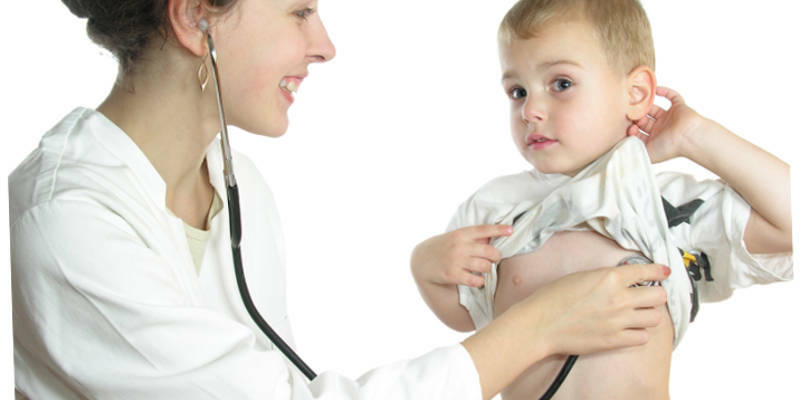
As with any procedure, there are significant limitations to the vaccination against influenza. It is impossible to vaccinate with prophylactic purposes:
- for those who recently had the flu, from the disease to the vaccination should take at least 3-4 months;
- directly at the time of illness( for colds and flu);
- for children under the age of 6 months, many pediatricians believe that it is not possible to vaccinate against influenza for up to a year;
- at a low-grade fever( 37 degrees), which lasts a long time, regardless of the causes of this phenomenon;
- for patients suffering from blood diseases or pathologies of the circulatory system;
- for individual intolerance of the components that make up the vaccine;
- persons with a tendency to allergic reactions to any medications.
According to the Ministry of Health, the success of vaccination, regardless of which vaccine is used, is guaranteed only if more than 50% of the population in the region are vaccinated with the expected epidemic.
Nonspecific preventive actions
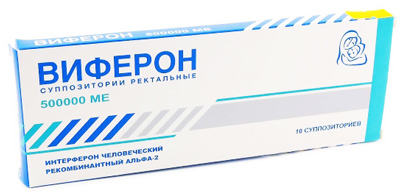
Nonspecific measures for the prevention of influenza and ARVI are reduced to achieving an increase in the body's defenses with the help of certain medications.
Nonspecific prevention of influenza and ARVI is carried out with the help of immunomodulators, antiviral drugs and interferon drugs.
Interferons include medicines containing protein-like bodies that cause the body's immune cells to become more active. Such drugs, very effective for the prevention of influenza, include:
- Cycloferon;
- Viferon;
- Intron;
- Reaferon;
- Kipferon.
Among the antiviral and at the same time enhancing the immunity of medicines, doctors are most often recommended to take the following drugs with prophylactic purposes:
- Cytovir;
- Arbidol;
- Ingazirin;
- Kagocel;
- Lavomax;
- Amiksin;
- Tyloron.
Among the medicines that have immunomodulatory properties, the following are most needed:
- Imudon;
- Immunal;
- Riboxin;
- Ribomunyl.
Against Respiratory Diseases
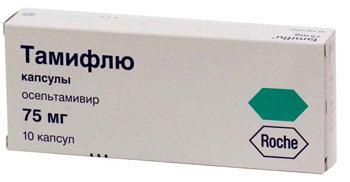 Photo: Tamiflu
Photo: Tamiflu For medicines that effectively cure respiratory diseases, including viral infections, are:
- Relenza;
- Tamiflu;
- Peramivir;
- Remantadine;
- by the Orvir.
It is advisable to carry out the same medications for the prevention of influenza and ARVI for parents of already ill children.
For the prevention of diseases of this type in children, doctors usually recommend Anaferon, and people who do not tolerate medications are Influcid - a completely natural homeopathic remedy.
Ointments
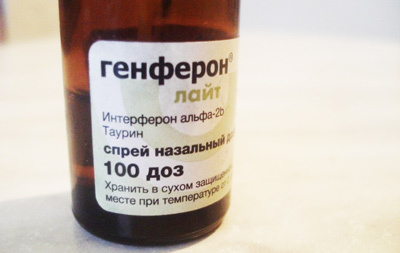
In addition to the direct administration of drugs, the use of various ointments, sprays and drops that create a local film barrier in the pathway of viruses, that is, preventing their entry into the body and infection, should be attributed to preventive measures of a nonspecific type. These means need to use everything, both children and adults, with the onset of seasonal epidemics. Apply ointments or other similar means before you leave home. The most effective topical medications are ointments and sprays:
- Genferon;
- Oxoline ointment;
- Laferabion;
- Interferon;
- Viferon;
- Nasoferon.
Local preparations are permitted and even necessary for use in women during pregnancy and breastfeeding.
Before you start taking any of the medications, you should always consult with your doctor, as doctors know what exactly the virus will be active in the near future and which of the medicines will be the most optimal protection in the epidemic season. It should be borne in mind that any antiviral drugs have contraindications and can have toxic effects on the liver and kidneys. Many of them are prohibited for use during pregnancy, so they should be prescribed by a specialist, taking into account the individual characteristics of the patient.
How do I take medicines for preventive purposes?
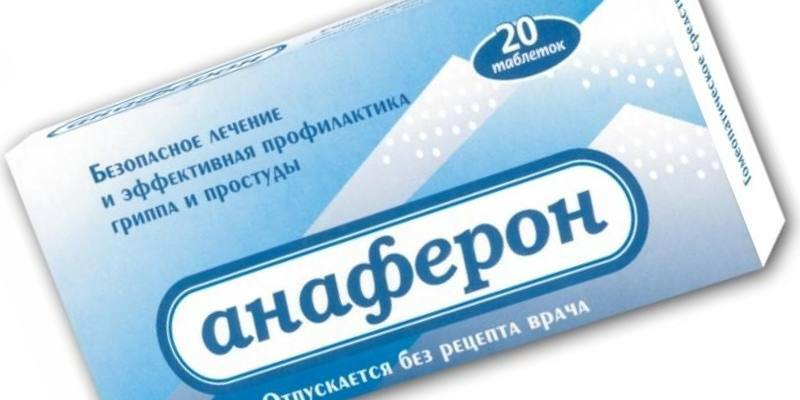
As a rule, the scheme of admission and the recommended dosage of drugs used for the prevention of influenza and ARVI, is detailed in the instructions of each of the drugs.
The general rules for taking drugs for the prevention of influenza and ARVI include:
Prophylaxis should be taken courses, starting a few weeks before the seasonal activity of viruses, since active substances must accumulate in the body and have time to prepare it for the upcoming attacks of pathogens.
Children are usually recommended to take Anaferon. The drug is given one tablet in the morning, the duration of the course depends on the age and weight of the baby and taking into account the risk of infection. If the child spends most of the day in the team, among other children, visits a kindergarten or school, the medicine should be drunk longer than the kids who are on home education.
The standard duration of the preventive prima of any medication and its amount is half the time from the immediate treatment course of the drug. That is, if for the treatment of catarrhal diseases the instruction recommends drinking 4 tablets a couple of weeks, then for prevention it is enough to take 2 tablets a week. It is best to discuss the course of the course of preventive treatment with a doctor who has all the data on the patient's state of health.
Homeopathic remedies should be taken 3-4 times for one capsule, unless otherwise specified in the instructions.
Prevention of influenza and ARVI in children with medicines requires mandatory notification of educators or caregivers, since it is not advisable to get flu shots when taking certain medications, and mass vaccinations are often performed in domestic educational institutions. To avoid this, it is enough to write a statement and accompany him with a certificate from a pediatrician in the event that a simple conversation with the staff of an educational institution is not enough. For the most effective, to take a preventive course of special funds need the whole family.
General preventive actions

Prevention of influenza and ARVI in adults and children who are not prone to colds and viral diseases and who do not have occupations associated with the risk of catching the virus may well be limited to simple actions:
- full nutrition;
- walks, hardening, moderate sports loads;
- airing the apartment;
- reception of vitamins and dietary supplements;
- healthy sleep-wakefulness ratio;
- compliance with the drinking regime, which requires the use of a sufficient amount of liquid( tea, juices, fruit drinks, compotes);
- careful compliance with all hygienic requirements;
- use of mask-respirator when visiting public places, including shops, markets, transportation and so on.
Already ill people should not show "heroism" and leave the house, because by such actions they jeopardize the health of all who will be forced to contact them.
During an epidemic, mass gathering sites should be avoided. Wash hands thoroughly after returning home, and until then do not touch them to the face, eyes, nose. Before going out to the street, it is recommended to lubricate the nasal passages with oxolin ointment, at home, wash your nose more often with special solutions and sprays with sea water.
Basic actions if
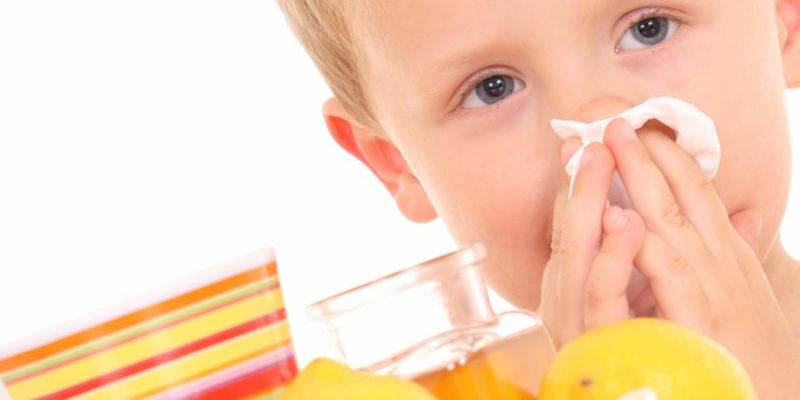
becomes ill If you are still sick, the following recommendations should be adhered to:
- at the first signs of a malaise, call a doctor at home;
- comply with bed rest;
- restrict contact with family members, stay in a separate room;
- the room is recommended to be ventilated more often, daily to make a wet cleaning;
- during the conversation be as far from the interlocutor as possible, put on a mask;
- disposable mask can be used no more than 2 hours, after which it must be disposed of and put on fresh;
- after contact with respiratory secretions, wash hands thoroughly with soap or treat with antiseptic;
- during coughing and sneezing of the mouth is closed with a sterile napkin.
All members of the family in contact with a sick person need to be monitored for a week in order to take the necessary medical measures in case of infection in a timely manner.
Folk remedies
 dogrose
dogrose Among the preventive folk measures, the use of garlic and onions is in the lead. The use of these products in daily nutrition helps to neutralize viruses, prevent their penetration into the body and strengthen the human immunity. Onions and garlic contain a whole complex of essential oils, phytoncides and other useful substances that provide antimicrobial, antiviral and antiseptic action and contribute to the increase of the body's defenses.
As prevention for at least a couple of months before the start of the cold season, you can every night before going to bed, drink vitamin and fortifying drinks:
- Honey broth from hips.5-8 tablespoons of dry berries pour a liter of boiling water and to simmer under the lid for 10 to 20 minutes. Honey add to taste before consumption.
- Currant tea with rose hips. Currant leaves and briar berries brew like regular tea and drink in the evenings. Instead of sugar to improve the taste of the drink is better to use natural floral honey.
- Lime tea with chamomile and raspberry. Lime blossom, leaves and berries of raspberry, take chamomile in equal proportions, brew like ordinary tea and drink instead of the usual drinks. You can add honey or lemon and a little sugar.
- ARVI and influenza - their prevention and treatment is given increased attention in medical institutions during seasonal epidemics. In fact, these are diseases that can be easily avoided if you constantly take care of your health, adhere to the right way of life and pay attention to strengthening immunity and tempering the body from the very childhood.


